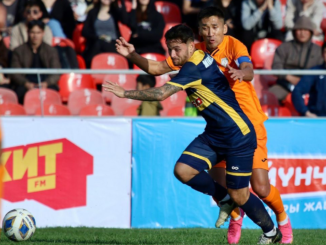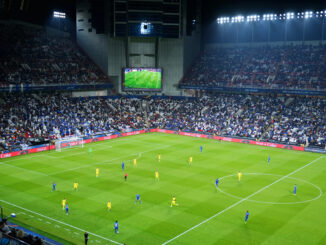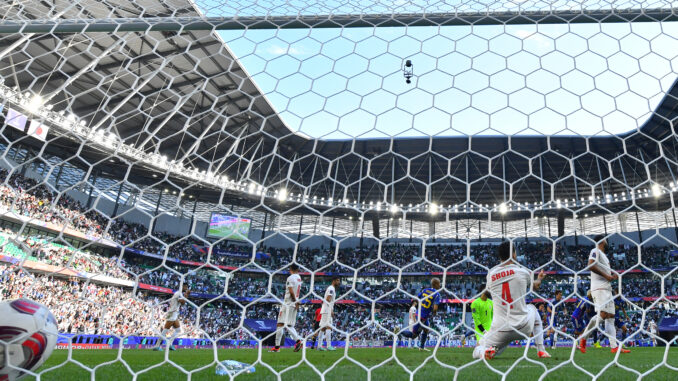
A mere six weeks on from the AFC Asian Cup final in Lusail, international football returns as the early rounds of World Cup qualification start to ramp up in Asia.
The blur of Qatar – underdog tales, dashed expectations and all in between – may only be a month ago, but momentum gained in either respect is hoped or feared to have an impact on the World Cup qualification phase.
The quick-turnaround second round group stage hits the midway point double-header over the coming week, with all 36 nations set to play home-and-away against the same opposition, before June omits half of the running order on the Road to 2026.
While the Asian Cup in Qatar was a broad failure for the established elite, it’s difficult to make a case for any of the continent’s big five having any trouble in ensuring their safe passage through to the Third Round, even a few months ahead of schedule.
Instead, the style of football and manner of performance will be pertinently under scrutiny, as each coach aims to switch the post-Asian Cup narrative to a mere blip towards the greater goals of another successful World Cup qualification.
Some, however, will be looking to reverse the narrative under new leadership; ten of the 36 nations have switched their coach since the last matchday in November.
With only six draws from 36 games so far, the group stage feels quite predictable and set in stone for where the potential surprises or interest may be focused. Instead, with a revolving door to the dugout, and an expectation generated from January’s Asian Cup hanging over them, the next week may provide more intrigue than initially appears on paper.
Three groups in particular promote such interest. With a host of new coaches and destabilised camps alike, the coming week may well prove more costly for some than others.
Korea’s post-Klinsmann reign begins against a rejuvenated Thailand
Group C provides the only all-East Asian group across the World Cup qualifying draw. Yet, despite a broadly predictable first round of matches in November, all four head into March with something to prove under new leadership.
Jurgen Klinsmann’s demise as Korea Republic’s national team boss was, in hindsight, all too predictable. But while many could have foreseen the parting of ways ahead of time, few may have been quick to assume he’d not make it to this March window, not least the KFA.
The muted concern placed on qualifying for the World Cup, at least at this early stage, spills into the lack of urgency in securing the German coach’s replacement. The more pressing unease could be argued that Korean U23 coach Hwang Sun-hong taking on a caretaker role for this upcoming window, may have more detrimental impact on the nation’s Olympic chances, with qualification ahead next month, than it does on the senior team.
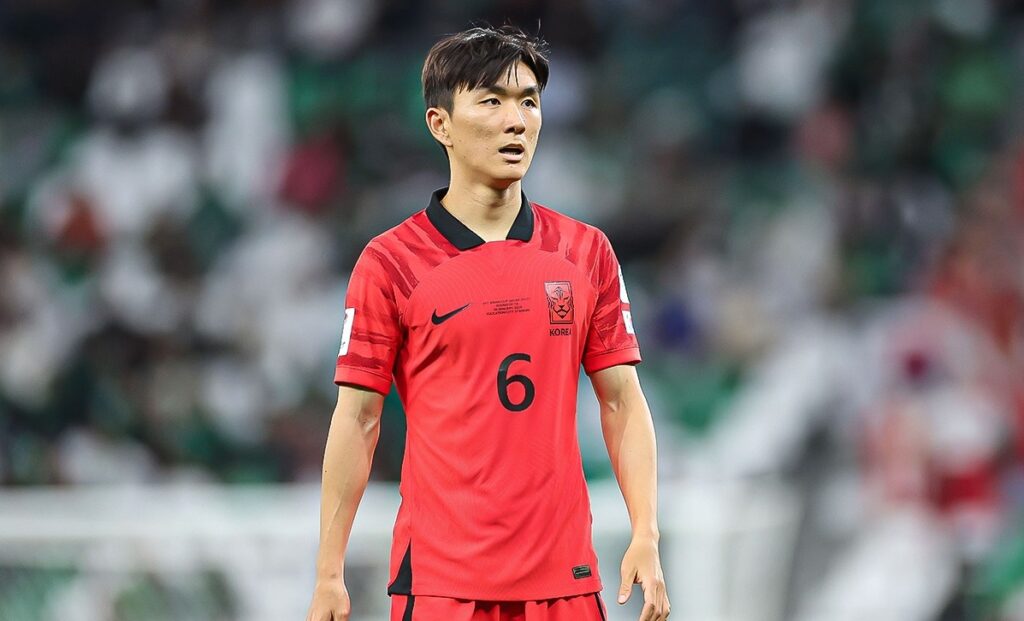
In truth, the modest challenge of navigating this round of qualifiers isn’t where the real progress is to be made in developing a national team to perform to their full potential at the World Cup in two years’ time. But with the Asian Cup passing by so unceremoniously for the Koreans, with an at times player directive to tactics taking over their exploits in Qatar, any new coach will argue their time to test themselves against the very best in Asia, let alone the world will now be limited.
It could’ve been reasoned that this window’s double header against Thailand would’ve given them a competitive, if not exactly certain test. Mano Polking had crafted an exciting, attacking side that could test any defence in Asia; yet his side’s fragilities were all too familiar to see in defeat to a modest China side back in November, ultimately curtailing the Brazilian’s tenure ahead of the Asian Cup.
When Thai FA president Madam Pang said, on Polking’s sacking, “I think it’s time to change, so that Thailand can prepare better when facing the top teams in Asia”, her vision may exactly be in these sorts of encounters. It’s a debate for another day whether merely avoiding embarrassment in the short term, may instead be preferred to improvement in the long term however.
In the main, a safe passage to the Asian Cup knockout stages was deemed a success given the calamity in the build-up. While new coach Masatada Ishii infinitely tightened up the Thai’s defensive play, it did leave little a little to the imagination in attack.
Thailand’s pragmatic approach against Saudi Arabia earlier in the year may well be the desired route against Korea this coming week; but by June they could well be out of sight of World Cup qualification. If ever an opportunity needs to be grasped it is now, as Korea continue to walk rudderless into a post-Asian Cup malaise.
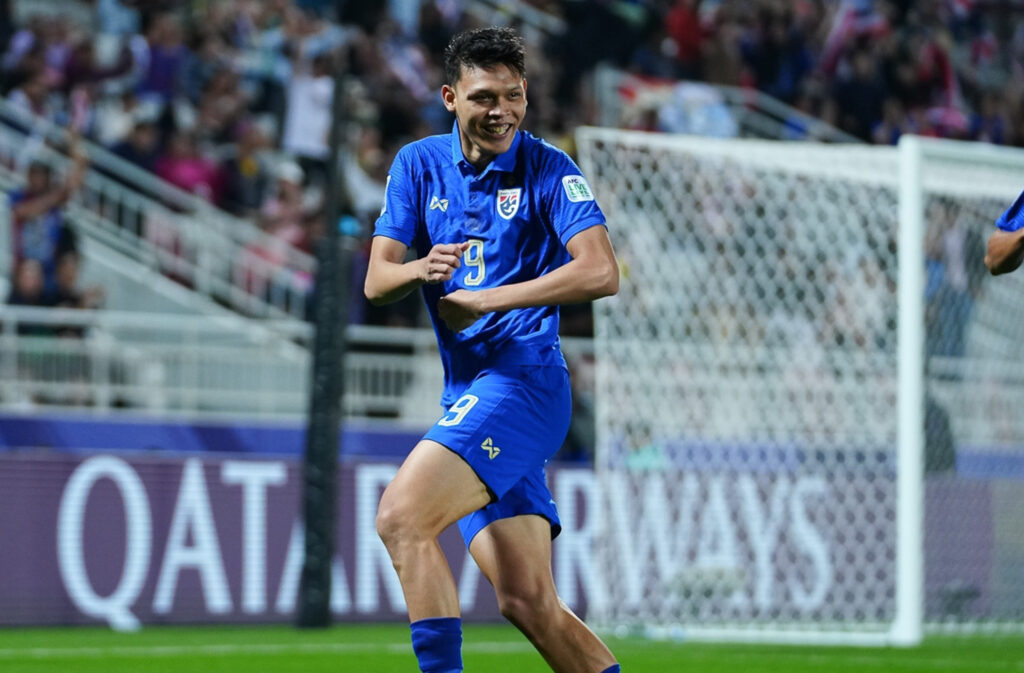
It leaves China, having secured three points over Thailand, unexpectedly in the rosiest position. Well placed to make it to the next stage, having just secured a new coach who knows how to generate an outcome that is more than a sum of its parts – dare we suggest some optimism in Chinese football?
Branko Ivankovic’s exploits with Oman, particularly in World Cup qualification on the Road to 2022, feel tailor made for the boost China require. Dire in Qatar, China did, however, look particularly sturdy in defence, albeit against comparatively weaker opposition.
Ivankovic’s approach to maximise potential on the break, alongside his previous experience in the country with Shandong in 2011, plays into the argument that China’s best approach is utilising harmony, rather than relying on the lacking individual talent they once had.
In that, a return to old ways is alluded to, with the recall of Brazilian nationalised duo of Elkeson and Fernandinho to the squad that returned from Qatar without scoring a goal. Ivankovic’s usual counter-attacking philosophy tends to make the most of little opportunities they have, it’s to be seen whether recalling ageing legs such as these plays into that methodology.
In their way this window is Singapore, the brimming hope of Southeast Asia over the last five years, but repeatedly underwhelming in reality. A fourth Japanese coach in succession in the form of Tsutomu Ogura hardly suggests change is afoot. Devastating defeats to Korea and Thailand outlines a team that needs a bigger bang impact in the medium term, if they can reconstruct their hopes of qualifying for the Asian Cup in 2027.
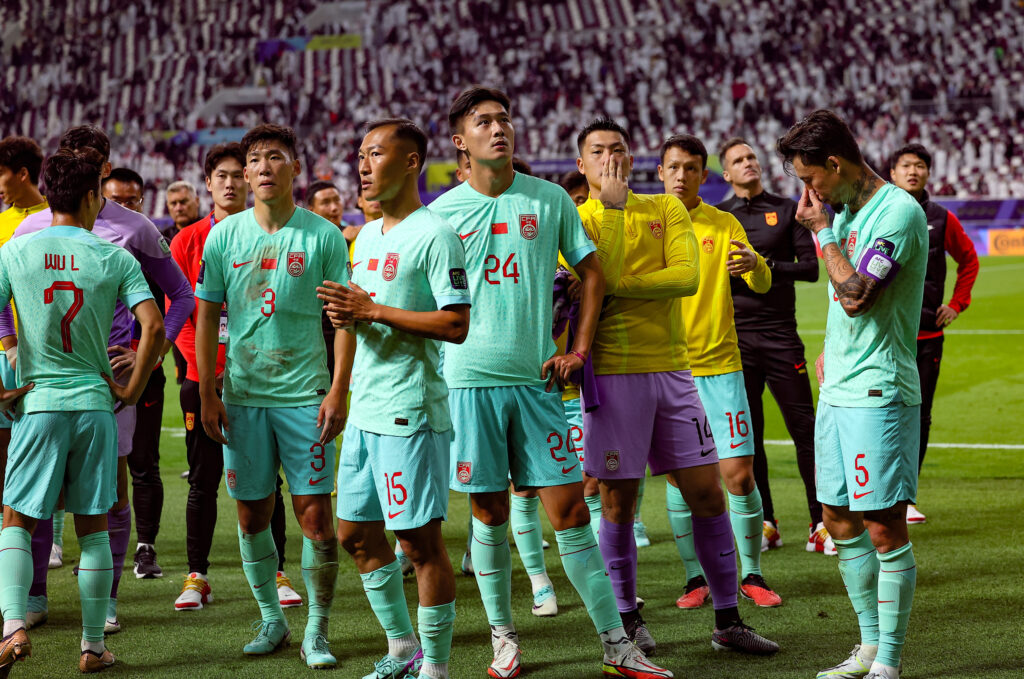
Looking for consistency, Malaysia, Oman and Kyrgyzstan aim to put to bed a drab Asian Cup campaign
The most open group, on paper, as qualification started up in November was Group D, and so far it hasn’t disappointed. However, while it remains highly competitive and unpredictable to choose who will qualify come the summer, following a miserable Asian Cup for the three sides involved, it may be a case of who disappoints least, than any thrust of form from any of these sides.
Malaysia, arguably the only side to buck the trend across World Cup qualification currently, in leading their group, underwhelmed in Qatar. While an enthralling last day draw with South Korea saved some face, crushing defeats to Jordan and Bahrain tarnished what hope many had in them heading into the tournament.
The team has attacking merits in the form of Faisal Halim and Arif Aiman, briefly seen early in World Cup qualification, yet the Asian Cup wobble have some questioning the wisdom of Kim Pan-gon. Not ideal timing then, heading into the crucial double-header against the nominal top seed of the group.
Oman, last cycle’s dark horses who took points off Japan and Australia, have regressed in the last 12 months, culminating in their blunt display in Qatar in what was Branko Ivankovic’s swan song.
Whether you consider his time in charge as a significant overachievement or a premature decline, his stability and structure made Oman the team they are today – a team punching above their weight in hope of an unlikely qualification.
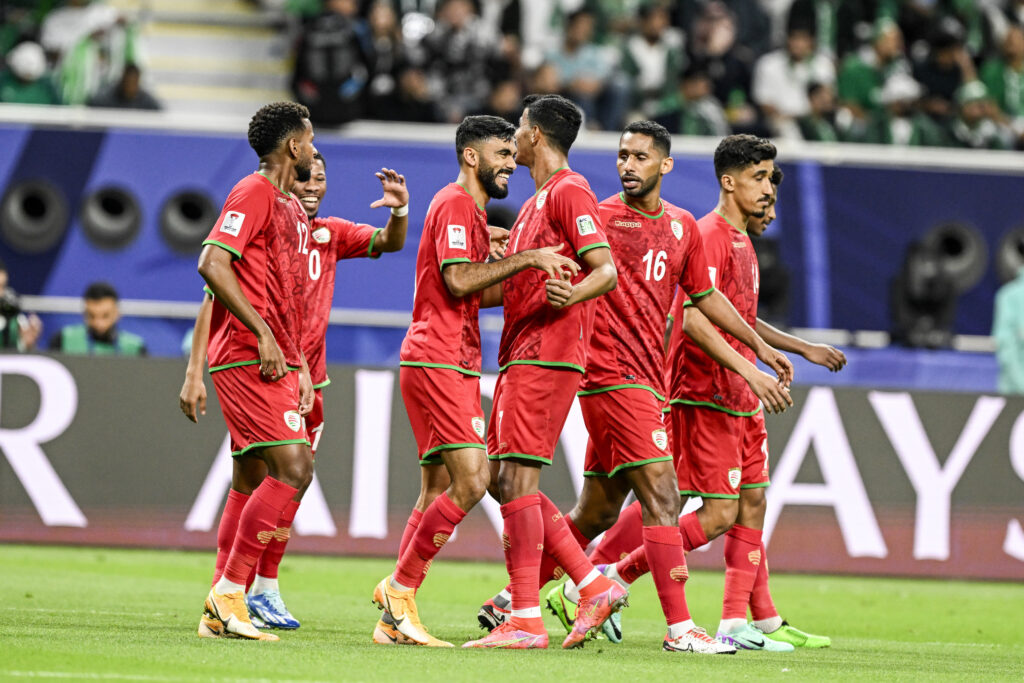
Form, however, has been mixed. Asian Cup aside, defeat to Kyrgyzstan in Bishkek in November, was a result few could’ve predicted, throwing their chances into doubt ahead of the half way mark.
A change of direction may be the perfect tonic. In comes Czech coach Jaroslav Silhavy, not the most glamorous name on the face of it, but a coach that would’ve been coaching at this summer’s Euros, but for being hounded out of his job due to undue scrutiny.
That scrutiny, ironically enough, could make him a perfect fit for Oman. Silhavy was criticised for being pragmatic, reactive, pointing to high energy and pressing over any individual guile. Perfect for a reinjection of Ivankovic-esque unity, not a necessary revolution to bed in over a short period of time.
Elsewhere, Kyrgyzstan stand as the surprise packet in a good position for progression, after that impressive victory over Oman, and an eye-catching yet narrow defeat in Kuala Lumpur.
Fast forward some four months, and the mood feels a little different around the camp. Stefan Tarkovic, under a remit for youth transition at January’s Asian Cup, reacted defensively to a competitive group, but one they should’ve competed with.
Another retreat into squad experimentation, with key players such as captain, Kayrat Zhyrgalbek uulu, and bright spark, Gulzhigit Alykulov, having been surprisingly dropped ahead of a, on-paper, winnable double-header may have spooked many Kyrgyz, and generated some hope for the opposition.
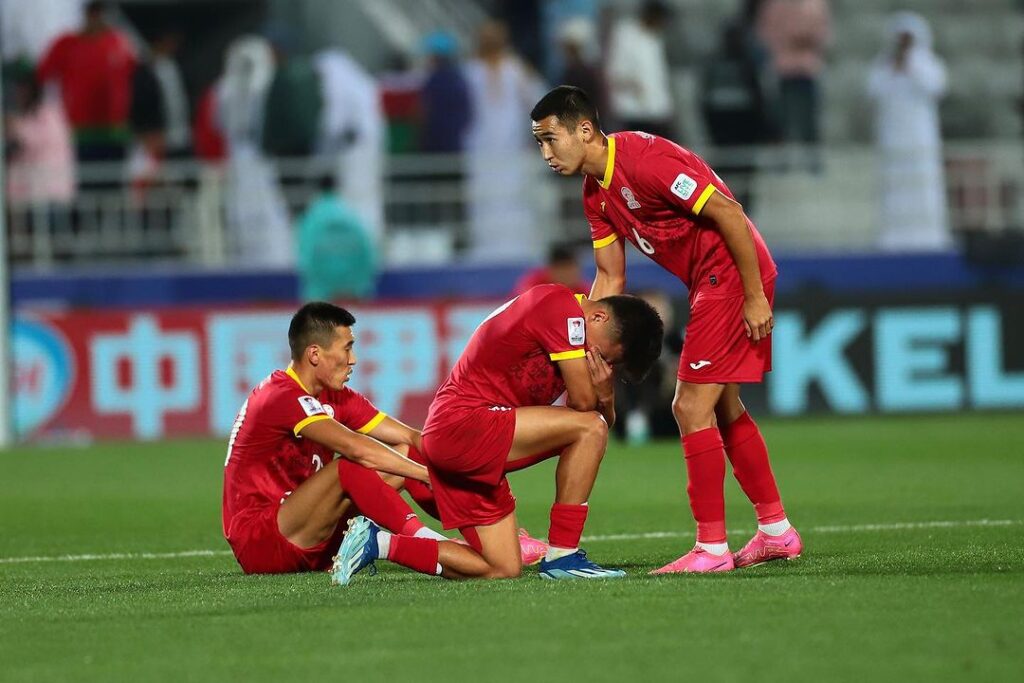
Their opposition are no fools neither. Taiwan, under the enigmatic Gary White, were competitive if not successful in November, and will be well placed against a Kygyz side that struggles to cover its weaknesses.
In a group that currently offers the only prospect for a real surprise across World Cup qualification, both matches here offer a little less predictability than the rest of Asia.
January’s fairytale success story take on Roberto Mancini’s stuttering Saudi superstars
The story of the Asian Cup undoubtedly came from the progress of Jordan and Tajikistan. As the elite in Asia collapsed, the charge from the so-called middle order gave hope that the potential of those sides likely to benefit from an expanded World Cup in 2026, may already be best placed to push forward the continent’s football.
Jordan’s run to the final was emotional and emphatic. The style, the narrative and the individual ability was widely commended. The all-round wizardry of Mousa Al-Taamari, the high impact energy of Mahmoud Al-Mardi, or the pace and finishing of Yazan Al-Naimat – the team’s progress engulfed the emotion in Qatar.
Amidst the euphoria, the calm presence of Hussein Ammouta on the sideline was integral in Jordan’s progress through the tournament. The aftermath, however, churned up emotions again, as Ammouta suggested he was likely to leave his post as head coach within months, following their triumphant run to the Asian Cup final.
While some speculated that he was earmarked as the next Algeria national team coach, a role since granted to Vladimir Petkovic, reports continues to swirl that the coach’s days in charge may well be numbered, suggesting he’ll move on before the summer.
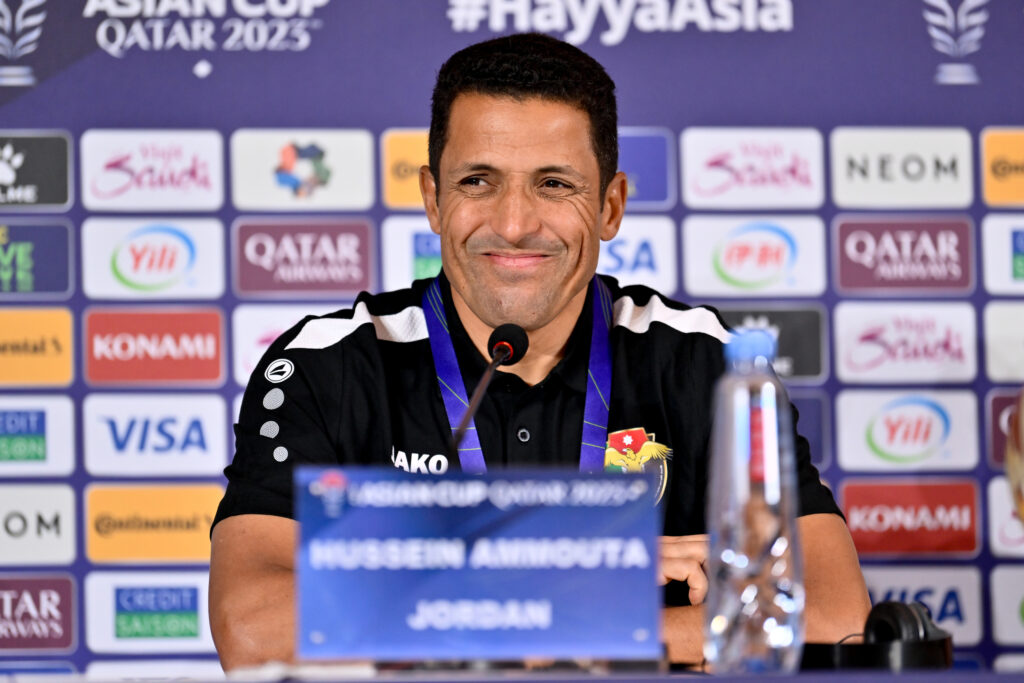
Others may propose this is tactical. Ammouta’s record, aside from the Asian Cup, has been unspectacular. This includes a muted start to World Cup qualification, with only one point from two games, leaving them with much to do in a group many Jordanian fans will have fancied progression from.
The upcoming double-header demands six-points against arguably the weakest opposition across the whole of qualification, Pakistan. While they may have generated many neutral well-wishers in their initial performances, they’ve been hopelessly outclassed; notably a 6-1 home reverse to Tajikistan. But Stephan Constantine will be keen on leaping on uncertainty and maybe a whiff of over-expectation following their Asian Cup run, to provide a merest hint of a shock.
Jordan’s pursuit will look towards Tajikistan – the overnight darlings of Asian football, given their unexpected run to the quarter-finals of the Asian Cup. The strength in feeling was enhanced by a convincing team unity, an optimistically attacking approach, and an enigmatic coach in Petar Segrt.
Their triumphant coach has since departed, in search of a new challenge, reportedly in the better remunerated Gulf. In his place, the FTT have put their shoulder to the wheel in retaining Segrt’s remaining coaching staff, and entrusting in his assistant, Georgian Gela Shekiladze, as head coach.
Continuity is key for Tajikistan. A run to the Asian Cup knockout stages, on debut, was unprecedented, but arguably not unforeseen. This squad of players is improving with age – still broadly in their mid-20’s – the bulk of this squad has their peak to come. The question mark may come in whether Shekiladze can have that extra motivational pull his predecessor had.
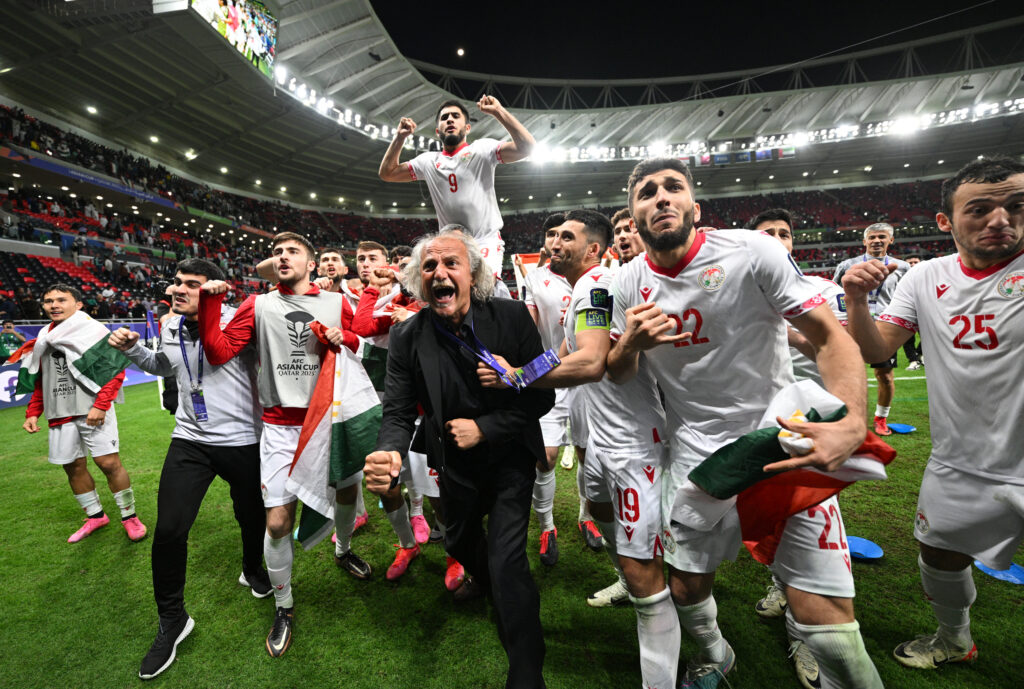
The other mitigation is the lack of a regular goalscorer. In Qatar, they desperately lacked a quality finisher.
Manuchekr Dzhalilov, their experienced all-time leading scorer, has thankfully recovered to feature on the pitch in pre-season over the winter break, following his cancer treatment last year, but his continual absence on the national stage is a big loss.
That may be their undoing in the upcoming window, as they set up against Saudi Arabia in the double-header. Their Gulf superiors may be in the supremacy in World Cup qualification terms, but the Asian Cup put a dampener on the mood heading into the back stretch.
Roberto Mancini’s ride as Green Falcons coach has been disrupted thus far. January’s Asian Cup was a baptism of fire to the inner workings of Saudi football, often hidden by Herve Renard’s successful navigation of the squad’s foibles. Mancini, not so lucky, or not so wise, instead struggled with collective fracturing and infighting.
One other struggle he could sympathise with Renard on, was in attack. In Qatar, Saudi Arabia once again cried out for a reliable route to goal. The misguided hope that Salam Al-Dawsari would bail them out in the crucial moments, too often came to an abrupt end.
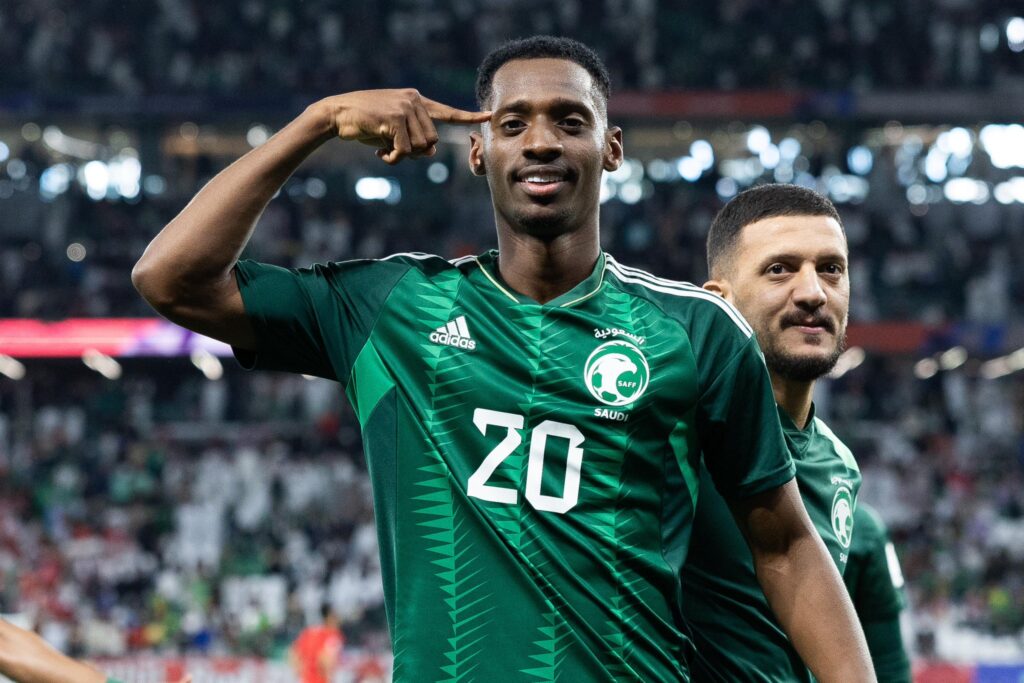
The constant tinkering between Saleh Al-Sheri, Firas Al-Buraikan and others at the point of attack, will no doubt continue this international window, but it remains a sore spot of the undoubted improvements being made across the country’s football.
This represents, not a tangible opportunity for a shock, nor the surprise many would hope for at this stage of qualification, but a wrinkle in a international stage that has it’s own narrative to offer the onlooking Asian football fraternity.
As teams develop, react to adversity or rebuild towards their distant World Cup qualifying dream, the coming week offers much to digest.
Photos: Asian Football Confederation


